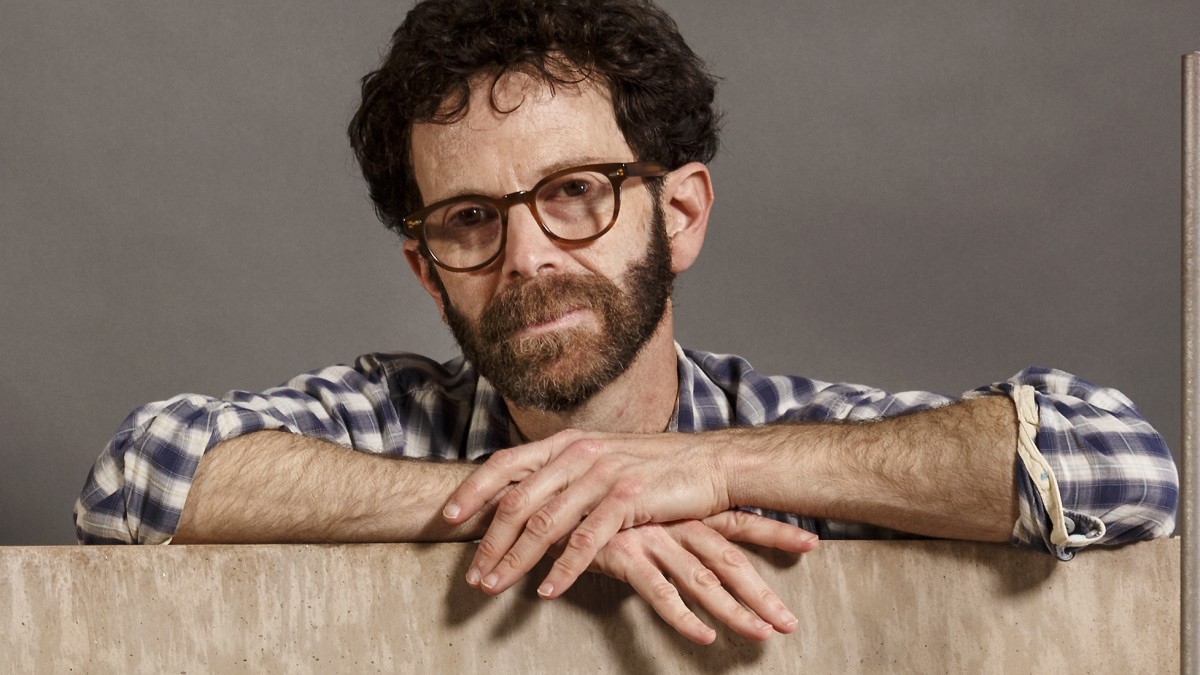I read the Charlie Kaufman novel after I had seen the latest Charlie Kaufman movie. I loved the Charlie Kaufman movie, feeling that I had understood it more than most people. By “most people,” I am referring to analytical types who were too keen on getting caught up in the film’s many references, which was, of course, Charlie Kaufman’s great trap. His greatest analytical victim was Richard Brody. Richard Brody is often an analytical victim when he writes his reviews for the New Yorker and everybody who follows film criticism knows this.
I did not feel that I was an analytical victim. I felt that I had understood the Charlie Kaufman movie because I had decided to feel it rather than understand it, to simply accept it for what it was, which was basically this: the entire film is the projection of a failed man and his ambitions, his life passing before his eyes. It is also a critique of privilege and patriarchy. Of course, there are other interpretations. But that is how it spoke to me. I could be right. I could be wrong. The fact that the Charlie Kaufman movie could be so many things says to me that it is a masterpiece. And I am not terribly concerned whether I am right or wrong about it. The point is that the Charlie Kaufman movie contained enough fascinating ambiguities to sustain my passion and interest.
I then started having many conversations with friends about what the film meant. I probably spent about seven hours of my life talking with friends about the Charlie Kaufman movie. And if you make a movie that someone ends up talking with other people about for seven hours, whether they love it or hate it, then you have very likely succeeded in making meaningful art.
Before seeing the Charlie Kaufman movie, I had no intention of reading the Charlie Kaufman novel. I have long been suspicious of filmmakers and screenwriters, especially clever ones like Charlie Kaufman, who decide to become novelists after the age of fifty. And that was most certainly what Charlie Kaufman had done. The man is now sixty-one years old, well over that high watermark of fifty. Now I had liked or loved all of Charlie Kaufman’s movies. I had seen them all. I even made a case for the sketches that Charlie Kaufman wrote for The Dana Carvey Show, although my argument was reliant upon a memory I had of watching The Dana Carvey Show when it originally aired and not based on any recent revisiting of the material. Some twenty-four years have passed since The Dana Carvey Show aired on national television. I did, in fact, revisit the material after I had cavalierly praised it during the seven hours of time I had devoted to discussing the Charlie Kaufman movie and I am not sure if I would defend The Dana Carvey Show as much as I did before revisiting The Dana Carvey Show. But every artist — including a clever artist like Charlie Kaufman — has to start somewhere. I am certain that my friends understood that this was the case and, after they had seen the material and reacted with some dubiety, I mentioned the twenty-four year gap and all was forgiven.
Back in the days when I was inexplicably invited to interview prominent people for my old podcast, I had the good fortune of interviewing Charlie Kaufman twelve years before 2020 had become The Year of Charlie Kaufman — a year that I am styling that way because it’s more hopeful than calling it The Year of the Pandemic or The Year of Living in a Hellscape or The Year In Which I Could Be Evicted From My Apartment Because Everybody is Unemployed and Nobody Can Pay Rent or The Year In Which We Started Taking Racism and Police Brutality More Seriously or The Year In Which We Waited to See Who Would Be in the White House Next Year and God It’s So Fucking Agonizing to Wait Please Put Us Out of Our Misery Already and because, unlike many artists, Charlie Kaufman had a new movie and a new book out that year. When I interviewed Charlie Kaufman twelve years before The Year of Charlie Kaufman, I got the sense that he didn’t like me very much.
I don’t think he likes critics or interviewers or journalists very much. He seems to have an antagonistic relationship with all of them. He often references them in his work. In the Charlie Kaufman movie, he had a character recite a Pauline Kael review of a Cassavettes movie verbatim. At one point during my interview with Charlie Kaufman, I had called Charlie Kaufman “an idea man.” He said that he wasn’t sure that he agreed with this. Perhaps he took umbrage because this seemed to be a generalization of what made a Charlie Kaufman movie a Charlie Kaufman movie. I meant no offense by the question. I only wanted to get a sense of what Charlie Kaufman’s brain was like and how he came up with ideas. He then proceeded to suggest that I didn’t know the premise of my question — that is, the premise that Charlie Kaufman was an idea man. He heckled me. So I decided to heckle him back, suggesting that he came up with a fresh idea every 2.2 days. I knew at the time that this probably annoyed Charlie Kaufman. Because you can’t really tell an artist that there’s a specific mathematical metric to the manner in which he comes up with ideas. I am also not sure why I felt compelled to annoy a man whose work I had admired like that. I was more egotistical and annoying back then and, for many years, I have had self-destructive tendencies. On the other hand, Charlie Kaufman seems to be annoyed by everything, especially analytical people telling him how he goes about making his art. Great artists are often annoyed and sometimes grumble, often for legitimate reasons. I suspect Charlie Kaufman had a legitimate reason to grumble at me. Even so, I viewed the “idea” thrust of our conversation as a way to see if Charlie Kaufman would be interested in having a bit of metafictional fun, much as many of his own movies were metafictional. I figured that the “metafictional fun” might be a different kind of interview than the usual ones, that it might take him out of the doldrums of sitting in the same room all day for twenty minute increments to talk to ostensible film journalists, answering the same questions and possibly entertaining the thought of blowing his brains out. Goodness me, if I had to spend weeks of my life doing that, I’d probably be as annoyed as Charlie Kaufman was with me and many other people. Maybe even more annoyed. So I don’t take Charlie Kaufman’s annoyance with me twelve years ago personally.
The fact that Charlie Kaufman was annoyed with me twelve years ago did not deter me from reading his book, nor did it have any influence upon my reaction. Again, my reluctance to read the Charlie Kaufman book had more to do with the temerity of the late-life artist jumping horses midstream. Perhaps this isn’t fair to Charlie Kaufman, but it reminded me of a man in a midlife crisis deciding to buy a sports car to prove to himself that he still had virility. While Charlie Kaufman was a clever screenwriter and filmmaker, it did not necessarily follow that he would be a novelist of the same skill. And, no, now that I’m going over the reasons, my immediate assumptions about Charlie Kaufman the Novelist weren’t entirely fair to Charlie Kaufman. Who the hell was I to make a snap judgment about one of the best screenwriters in the movie business? Maybe Charlie Kaufman wasn’t just a great novelist, but perhaps a great Scrabble player. Maybe he played the accordion when nobody was around and he was one of the top five accordion players in the world. I’ve only spent thirty minutes with Charlie Kaufman. That’s not enough time to know the man. The fact of the matter is that it was truly unfair for me to assume that Charlie Kaufman was little more than one of the best screenwriters in the movie business. Although I’m sure Charlie Kaufman would understand why I came to the conclusion that I did — that is, if he even cares. I suspect he doesn’t.
Despite all this, I read the Charlie Kaufman novel and I very much enjoyed it and I can strongly recommend it. If you enjoyed this essay, you will probably enjoy the Charlie Kaufman novel.
This has been a review.


 Correspondent: It’s safe to say that you are an idea man. So I must ask you: to what degree do you worry about an idea? Does your mind brim with more ideas — even correct ideas — than you can possibly use? Are you thinking of ideas right now? Is there a slight sense of panic with any idea? What is your idea of ideas?
Correspondent: It’s safe to say that you are an idea man. So I must ask you: to what degree do you worry about an idea? Does your mind brim with more ideas — even correct ideas — than you can possibly use? Are you thinking of ideas right now? Is there a slight sense of panic with any idea? What is your idea of ideas?